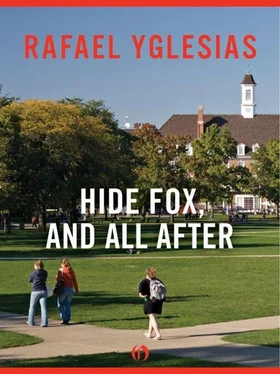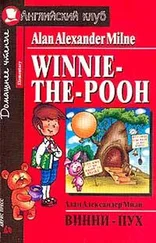He had read nothing for months, and the juicy paperbacks that lined the walk of his room cried out against this neglect. For days he would pick one out, open it, and, being preoccupied, leave it with barely a page read. The idiocy of all those who advised him had blocked the entrances to those doors that harbored time and thought of his own. The constriction was as precise as in chess: hardly visible. His poetry became ridiculous, expressing an oppression that called for a treatise, not imagery.
His impotence against his oppressors, an impotence that included an inability to prove the oppression, subsided to self-hate. He saw his floppy arms and legs, his gawky manner. He masturbated each night, leaving the evidence pressing against his body for weeks. He found no limits to make himself more contemptible; and knowing the cause of his self-hate increased it. Impotent furor at his impotence: the circle in which his emotions were bound knew no escape. If he confessed to all this, he would be told he was the one who was sick. He wanted, and needed, his own life style; and suddenly, as if it had gone on too long, as if he had been pushed too far, he reared back and began spring cleaning.
Wednesday night of one of the last weeks, Raul opened Dreiser’s The Financier and began reading. Thursday morning, taking a collection of notebooks and old poems, he went on. A little rest Thursday night, and, taking Dreiser’s Titan, he read and revitalized his poems. The air in Van Cortlandt Park was breezy, soft, and vital. The days were graceful, the freedom sweeter for being stolen, and the cost terrible.
His friends, meeting him at Mike & Gino’s, looked at him wide-eyed. Jeff, in a frightened whisper, told him that Tom Able was telling Raul’s teachers where he was. Raul smiled and said, “That’s what he’s taught to do.”
He decided to go downtown early Friday afternoon and, passing through the subway cars, he saw his history teacher. He nodded at him and went on.
Perhaps the frank way Raul cut school for those two days caused the relative calm with which it was met by his parents and the school. His brother didn’t even feel a man- to-man talk was necessary. For once, the usual run of complaints aroused no guilt. Fucking up? Why, he had read two novels and completed twelve poems. The money? His father, but for his pride, could get a scholarship; they were based on need, not excellence; his sanity was worth more than the tuition.
The school asked that Raul see Henderson, rather than White, on Monday. Though this was preferable, Raul would feel guilty with him, and therefore more vulnerable. Due mostly to his parents, though they did not encourage him to stay in school, by Monday Raul’s calm had fled and he wished desperately to stay.
His appointment with Henderson was in the afternoon, and he spent the morning with Jeff. After a class, Jeff and he walked off the school grounds to have a cigarette. They followed a wooded road that led to the rear of the school grounds. Rounding a corner, a car came sharply to a halt. Henderson was in it.
“Jeff! Raul! Get in here.”
They threw their cigarettes on the ground, pressing them out. Raul shook his head. “Oh boy,” he said.
They got into the back seat. Henderson started the car. “Do either of you have classes?”
“No,” Raul said. “I have a study hall now.”
Jeff, very nervous, outlined his entire morning schedule.
Henderson merely grunted his recognition. “I was just driving to school,” he said, stopping in irritation. “And I find you two. I hope you’re not lying to me, and you do have no classes.”
They mumbled no. The statement required no denial; Henderson was pointing out how far they had breached his trust.
The car stopped in the faculty parking lot. “Go up to my office,” Henderson said. “I’ll be up there in a few minutes.”
A few students looked on in surprise at seeing Raul and Jeff get out of Henderson’s car. Raul, because of the stage and his cutting, was known; they were piecing it together. Jeff and he hurried up the stairs as if they were being chased. Jeff, in a tense whisper, asked Raul, “What’s he gonna do?”
Raul shrugged. He didn’t like Henderson’s tone. It was White’s, or his father’s, or any blundering authoritarian trying to establish his perishable superiority. Raul’s arrogance was clearly saying: Watch out, Henderson baby, you may blow it.
Henderson’s secretary, seeing Raul and Jeff hurrying into his office and knowing that both of them had appointments later in the day, realized something was wrong. “Did Mr. Henderson ask you to go to his office?” she asked softly.
Jeff mumbled and nodded, Raul not stopping.
Henderson, seeing a member of the faculty in the parking lot, went up to him, asking that he not mention Raul and Jeff being in his car to anyone. Reaching his office, he asked his secretary to get Raul’s and Jeff’s folders. He stood in his outer office, trying to control an anger that arose from terrible frustration. Raul and Jeff had done nothing unusual. Students often walked that road to smoke. But his leniency had made the practice more frequent. The students, seniors in particular, had been taking advantage of him, loading the guns of those faculty and parents who opposed him.
The man whom he succeeded would long ago have thrown Raul out on his ass. Henderson had been magnanimous. He had been willing to accept Raul’s reasons for cutting, and the day he was to see him, he had broken a rule. For a moment, Henderson had to reflect that Raul’s luck was awful. To have been caught on that day, and by him, was phenomenal. After all, this was the real crime.
His secretary handed him Raul’s and Jeff’s folders. He looked at their schedules. They had told the truth, but he knew that already. He walked into his office. Raul and Jeff were sitting on the couch, their books on the coffee table before them. Henderson sat down, opening Raul’s folder. In it was his letter to Raul’s parents that smoothed everything over. It infuriated him. And Raul, oblivious, looking out the floor-to-ceiling windows, maddened him still more.
“You were to see me today, isn’t that so?” he asked Raul.
“Yes, sir.”
“And you too, Jeff.”
Jeff gulped. “Yes, sir.”
“All right.” He shifted in his chair. “You’ve let me down,” he said, looking at Raul. “Both of you. Raul, I was willing to let your cutting on Thursday and Friday pass. It seemed reasonable to me that you needed a rest. I’ve protected you from the faculty. Many of them, most of them, think that you should be thrown out. Mr. White, Mr. Miller, and I have all stuck our necks out.” He paused. “I’ve written this letter to your parents, and I’m not going to change it, in spite of this. I don’t want either of you to tell anyone about this. I’m not. I don’t know why, but I’m going to give both of you another chance. But the next time that either of you breaks any rule, no matter how trivial, you’re out!” He looked at Raul and then at Jeff. “Jeff, I’ll see you later today.” He paused again, rising. He pointed to the door. “I don’t want to see either of you in here again like this. Now get out!”
Out of both shock and fear, Raul and Jeff hurried out. The grace and dignity of both the man and his office had been violated by his tone. Jeff was whispering excitedly to Raul as they walked through the building, but Raul was not listening. He was smiling strangely.
Those advisers at school — Mr. Miller, Mr. Bowden, and Mr. White — who took on the aspect of sorrowful fathers when they saw Raul after this incident warned him about the influence he had on Jeff, and Jeff on him. Though Raul would answer heatedly that, if either was being influenced, it was Jeff, he wasn’t fooled. A very old tactic, he thought mildly, very cheap.
Читать дальше











